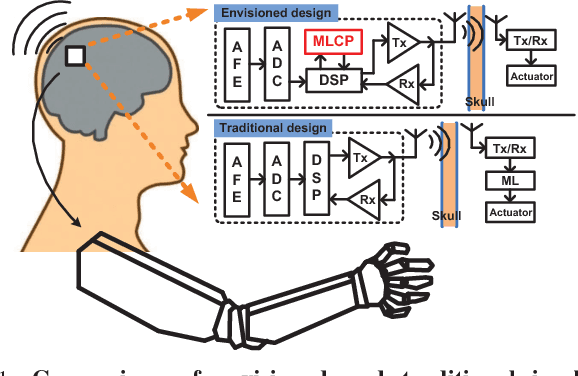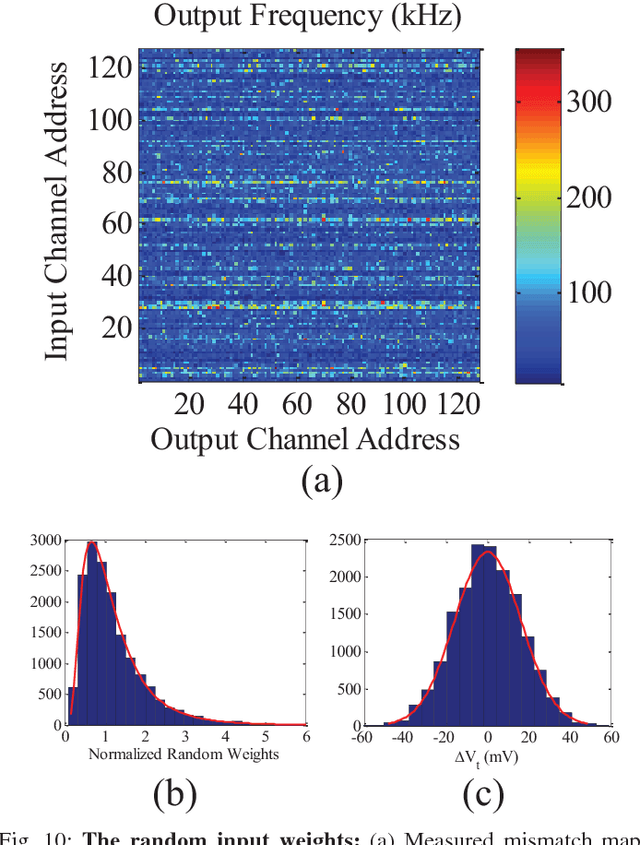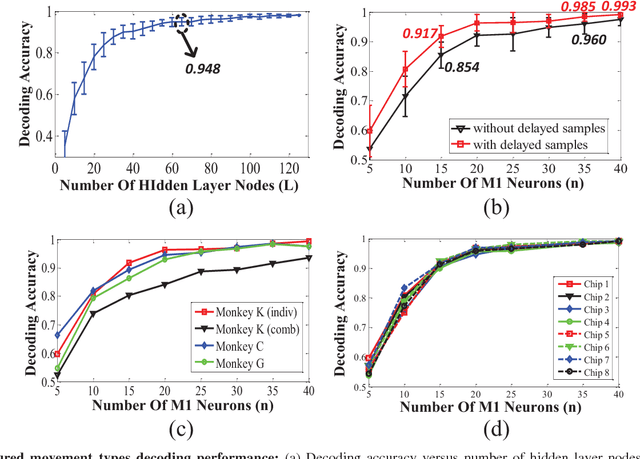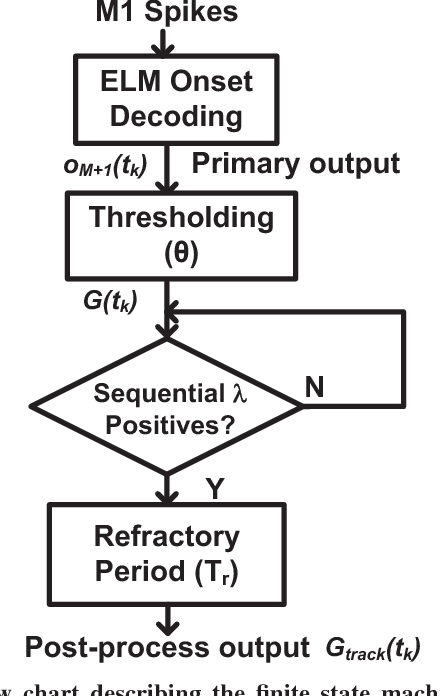A 128 channel Extreme Learning Machine based Neural Decoder for Brain Machine Interfaces
Paper and Code
Sep 27, 2015



Currently, state-of-the-art motor intention decoding algorithms in brain-machine interfaces are mostly implemented on a PC and consume significant amount of power. A machine learning co-processor in 0.35um CMOS for motor intention decoding in brain-machine interfaces is presented in this paper. Using Extreme Learning Machine algorithm and low-power analog processing, it achieves an energy efficiency of 290 GMACs/W at a classification rate of 50 Hz. The learning in second stage and corresponding digitally stored coefficients are used to increase robustness of the core analog processor. The chip is verified with neural data recorded in monkey finger movements experiment, achieving a decoding accuracy of 99.3% for movement type. The same co-processor is also used to decode time of movement from asynchronous neural spikes. With time-delayed feature dimension enhancement, the classification accuracy can be increased by 5% with limited number of input channels. Further, a sparsity promoting training scheme enables reduction of number of programmable weights by ~2X.
 Add to Chrome
Add to Chrome Add to Firefox
Add to Firefox Add to Edge
Add to Edge